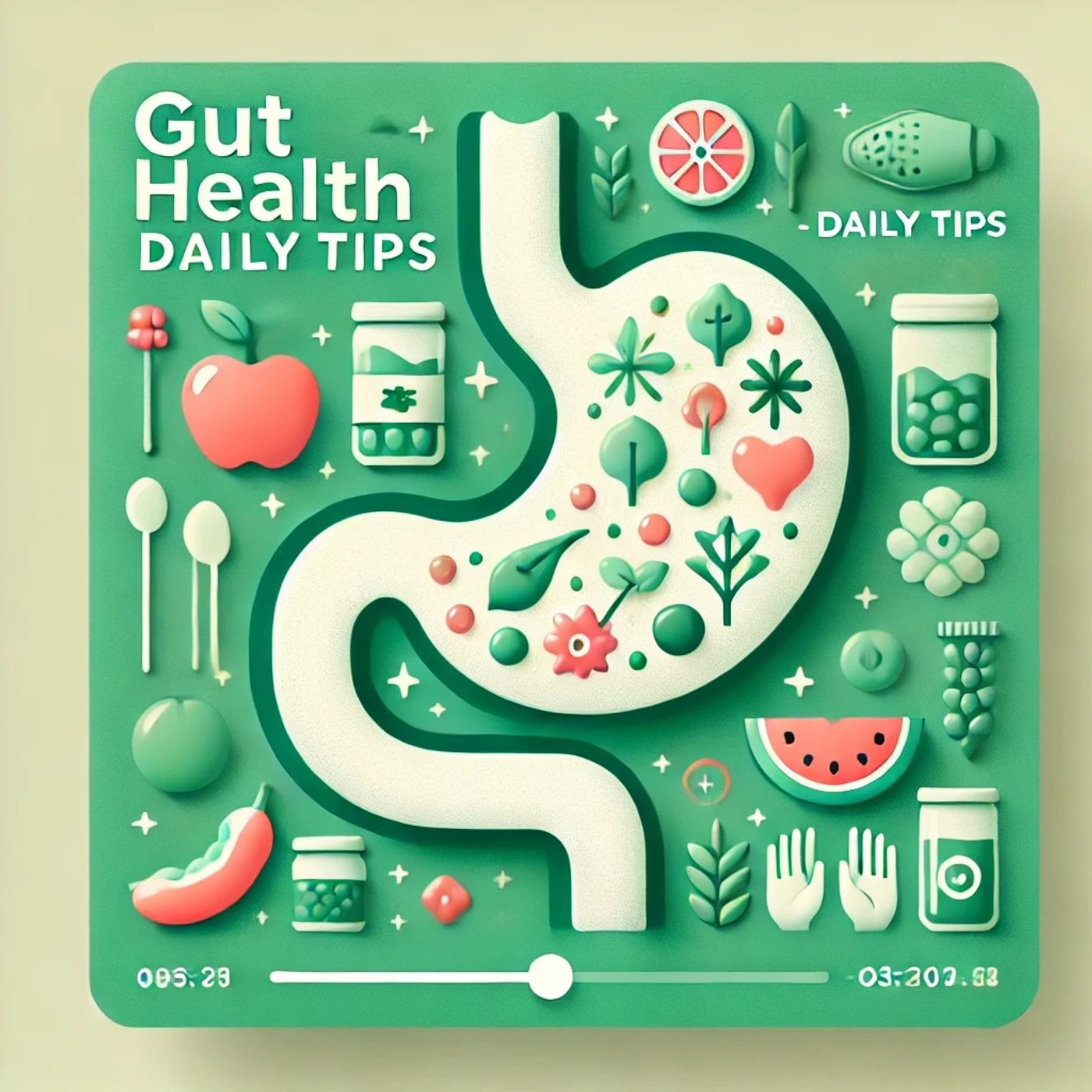Optimized Headline: "Unlock Vibrant Health: 8 Proven Strategies to Enhance Gut Microbiome and Boost Overall Wellness"
Update: 2025-09-20
Description
Gut health is a critical component of overall wellness, influencing everything from digestion and nutrient absorption to immune function and mental health. The gut, or gastrointestinal tract, is home to trillions of microorganisms, collectively known as the gut microbiota. These beneficial bacteria play a crucial role in maintaining health and preventing disease. Improving gut health involves nurturing these microorganisms through lifestyle choices and dietary habits. Here are some effective ways to enhance your gut health:
1. **Diversify Your Diet**: A varied diet introduces a wide array of nutrients to the gut, fostering a more diverse microbiota. Consuming different types of fruits, vegetables, whole grains, and legumes can support a balanced microbial ecosystem. This diversity is essential, as each type of bacteria thrives on different nutrients.
2. **Consume More Prebiotics and Probiotics**: Prebiotics are non-digestible fibers that feed beneficial gut bacteria, found in foods like garlic, onions, asparagus, and bananas. Probiotics, on the other hand, are live bacteria found in fermented foods such as yogurt, kefir, sauerkraut, and kimchi. Integrating both prebiotics and probiotics into your diet is vital for maintaining and enhancing the microbiota.
3. **Limit Processed Foods and Artificial Sweeteners**: Processed foods often contain additives that disrupt gut bacteria balance. Similarly, artificial sweeteners like aspartame have been shown to negatively affect the gut microbiome. Opt for unprocessed, whole foods to promote a healthier gut environment.
4. **Stay Hydrated**: Drinking plenty of water positively impacts the mucosal lining of the intestines and the balance of good bacteria. Hydration supports digestion and nutrient absorption, ensuring your gut functions optimally.
5. **Manage Stress**: Chronic stress can lead to imbalances in gut bacteria, as well as increased intestinal permeability, often referred to as "leaky gut." Techniques such as meditation, yoga, and deep-breathing exercises can help mitigate stress levels, subsequently supporting gut health.
6. **Get Adequate Sleep**: Sleep deprivation can negatively affect gut health, possibly leading to dysbiosis, an imbalance in gut bacteria. Prioritize getting 7-9 hours of quality sleep each night to maintain both gut and overall health.
7. **Exercise Regularly**: Engaging in regular physical activity promotes a more diverse microbiome. Studies have shown that active individuals tend to have higher levels of beneficial bacteria compared to sedentary individuals. Aim for at least 150 minutes of moderate aerobic activity each week.
8. **Limit Antibiotic Use**: While antibiotics are necessary for treating bacterial infections, they can also disrupt the balance of gut bacteria. Use them only when prescribed by a healthcare professional and consider taking probiotics afterward to replenish beneficial bacteria.
By incorporating these strategies into your daily routine, you can cultivate a thriving gut microbiome that supports a healthy and resilient bodily system. Fostering gut health is an investment in your well-being, influencing not only digestion but also mental and immune health.
For more http://www.quietplease.ai
Get the best deals https://amzn.to/3ODvOta
This content was created in partnership and with the help of Artificial Intelligence AI
1. **Diversify Your Diet**: A varied diet introduces a wide array of nutrients to the gut, fostering a more diverse microbiota. Consuming different types of fruits, vegetables, whole grains, and legumes can support a balanced microbial ecosystem. This diversity is essential, as each type of bacteria thrives on different nutrients.
2. **Consume More Prebiotics and Probiotics**: Prebiotics are non-digestible fibers that feed beneficial gut bacteria, found in foods like garlic, onions, asparagus, and bananas. Probiotics, on the other hand, are live bacteria found in fermented foods such as yogurt, kefir, sauerkraut, and kimchi. Integrating both prebiotics and probiotics into your diet is vital for maintaining and enhancing the microbiota.
3. **Limit Processed Foods and Artificial Sweeteners**: Processed foods often contain additives that disrupt gut bacteria balance. Similarly, artificial sweeteners like aspartame have been shown to negatively affect the gut microbiome. Opt for unprocessed, whole foods to promote a healthier gut environment.
4. **Stay Hydrated**: Drinking plenty of water positively impacts the mucosal lining of the intestines and the balance of good bacteria. Hydration supports digestion and nutrient absorption, ensuring your gut functions optimally.
5. **Manage Stress**: Chronic stress can lead to imbalances in gut bacteria, as well as increased intestinal permeability, often referred to as "leaky gut." Techniques such as meditation, yoga, and deep-breathing exercises can help mitigate stress levels, subsequently supporting gut health.
6. **Get Adequate Sleep**: Sleep deprivation can negatively affect gut health, possibly leading to dysbiosis, an imbalance in gut bacteria. Prioritize getting 7-9 hours of quality sleep each night to maintain both gut and overall health.
7. **Exercise Regularly**: Engaging in regular physical activity promotes a more diverse microbiome. Studies have shown that active individuals tend to have higher levels of beneficial bacteria compared to sedentary individuals. Aim for at least 150 minutes of moderate aerobic activity each week.
8. **Limit Antibiotic Use**: While antibiotics are necessary for treating bacterial infections, they can also disrupt the balance of gut bacteria. Use them only when prescribed by a healthcare professional and consider taking probiotics afterward to replenish beneficial bacteria.
By incorporating these strategies into your daily routine, you can cultivate a thriving gut microbiome that supports a healthy and resilient bodily system. Fostering gut health is an investment in your well-being, influencing not only digestion but also mental and immune health.
For more http://www.quietplease.ai
Get the best deals https://amzn.to/3ODvOta
This content was created in partnership and with the help of Artificial Intelligence AI
Comments
In Channel





